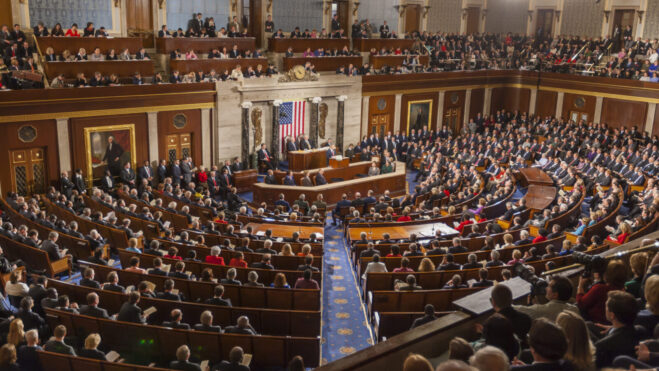Florida Legislator Files Bill To Expand Lobbying Ban To State Gambling Regulators
Perhaps putting a halt to the revolving door
3 min

Florida Rep. John Snyder has filed a wide-ranging gambling bill that would legalize and regulate daily fantasy sports in Florida — and the bill also contains language looking to close a loophole regarding the amount of time a former member of the Florida Gaming Control Commission (FGCC) must wait before joining fantasy sports or sports betting companies.
Snyder filed HB 1467 on the final day of February and it was referred to the Industry & Professional Activities Subcommittee. It would need to pass out of the Budget and Commerce committees before a floor vote. Daily fantasy sports has been an interesting challenge for Florida given the near monopoly the Seminole Tribe has in the Sunshine State with relation to both casino wagering and online sports betting through Hard Rock.
In addition to legalizing and regulating DFS, Snyder’s bill also calls for a two-year waiting period for commissioners of the five-member FGCC to take a job at any fantasy sports or sports betting company after leaving the post. Former FGCC Executive Director Louis Trombetta, the first person to hold that role, resigned from that position last December and was named a Director of Government Relations with FanDuel later that month.
This type of measure is colloquially known as a “revolving door” law, intended to prevent government officials from lobbying on behalf of private interests before the agency that he or she just left, in the interest of avoiding conflicts, undue influence, and preserving public trust.
Earlier this week, on Monday, the revolving door language was added via amendment to the Senate’s version of the bill, S1404. And on Tuesday, the committee substitute containing that language was passed out of the Regulated Industries committee by an 8-0 vote.
It’s about ‘fairness in the marketplace’
Rep. Snyder told the Miami Herald that his two-year wait provision was not in direct response to Trombetta leaving the FGCC for FanDuel, but rather “fairness in the marketplace.”
“Any time you have a regulator in a position to make significant decisions on the industry, I think it’s important they sit on the bench for a little bit before they get back into it.”
Snyder’s proposal to regulate fantasy sports presents a stark contrast to Trombetta’s actions while serving as FGCC Executive Director. As Florida’s top gaming regulator, Trombetta had to work within the provisions of a carveout in the compact agreed to by the state and the Seminole Tribe. At the time of the signing, fantasy sports was more a peer-to-peer contest that differed from sports betting, which is a bettor against a sportsbook operator.
As daily fantasy sports platforms evolved to include event-based outcomes similar to sports betting, the Seminole Tribe argued such games created competition against its exclusivity. Trombetta sent cease-and-desist letters to Betr, Prize Picks, and Underdog, three of the most popular DFS sites in the U.S. in December 2023, arguing “Under Florida law, betting or wagering on the result of contests of skill, such as sports betting, including fantasy sports betting, is strictly prohibited and constitutes a felony offense unless such activity is otherwise exempted by statute.”
Equally notable was Trombetta not sending similar letters to FanDuel and DraftKings regarding their respective fantasy platforms, though neither was at an evolved stage similar to the aforementioned trio that included parlay-like wagering capability. State Sen. Joe Gruters questioned Trombetta over the lack of letters to the two gaming titans, arguing the state agency “may be selectively enforcing its interpretation.”
The larger purpose of Snyder’s bill could potentially end what appears to be a gray gaming area in Florida as it pertains to fantasy sports. In the FAQ section of its website, the FGCC offers a vague answer to the question “What about fantasy sports? Is it allowed?”
Again, probably not. Unless you are placing a wager through sportsbooks operated by or in conjunction with the Seminole Tribe of Florida, you are most likely placing an illegal wager.
The bill also contains a substantial number of other provisions relevant to the gaming industry, including, among others:
- Amends the requirements for appointing members of the Florida Gaming Control
Commission; - Replaces a requirement for slot machine licensees with a requirement that slot machine;
licensees create a written policy for ensuring opportunities for construction services from economically disadvantaged businesses; - Prohibits wagering on any professional or amateur game knowing that the results are prearranged or have been predetermined.
- Prohibits the false impersonation of commission personnel or representatives and provides a criminal penalty;
- Increases criminal penalties for keeping an illegal gambling house.






